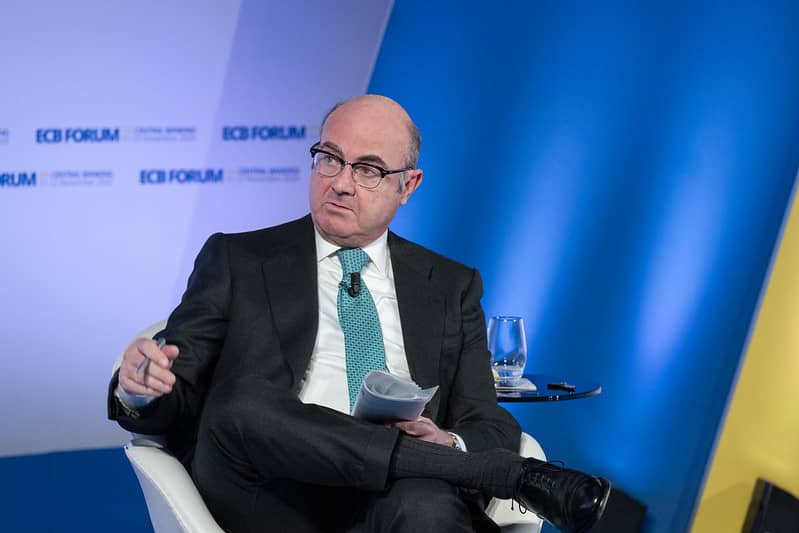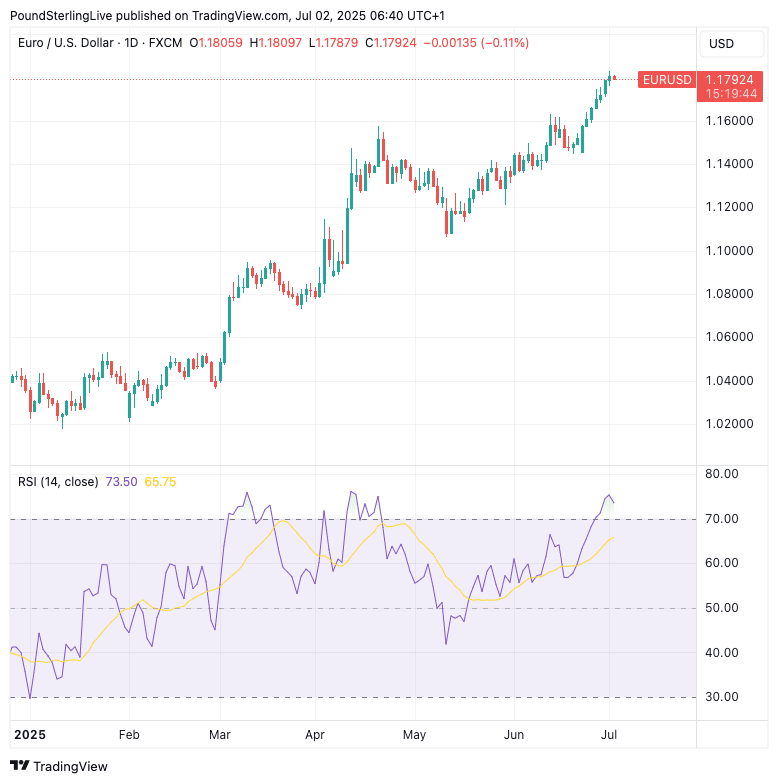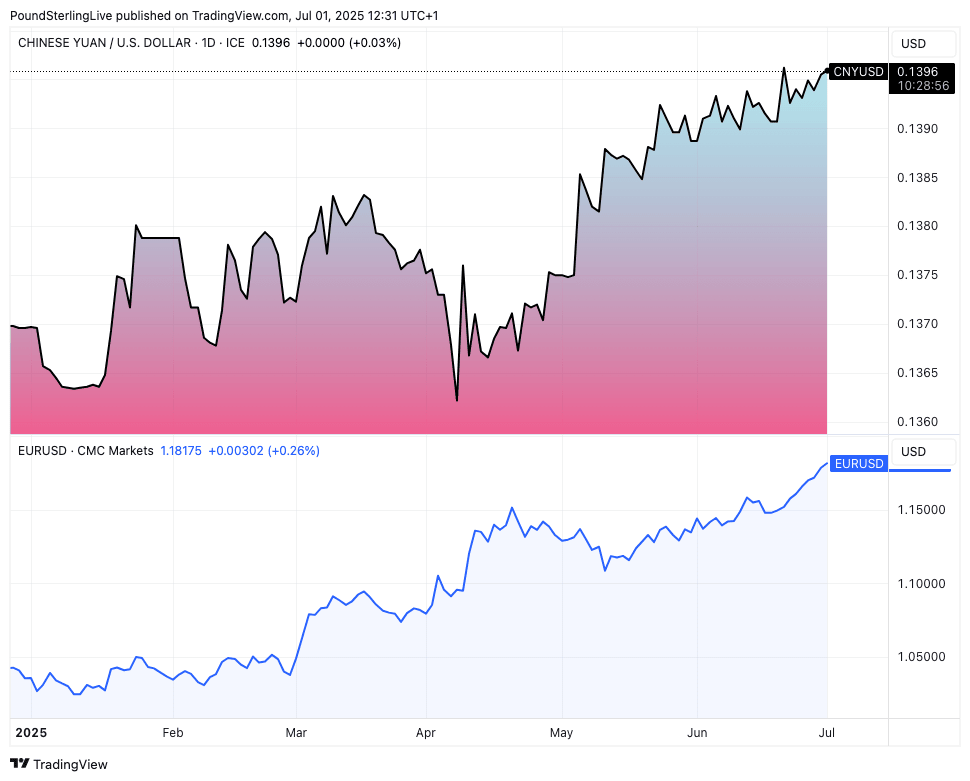ECB Signals 1.20 is the Pain Threshold for Euro-Dollar Exchange Rate
- Written by: Gary Howes

Luis de Guindos, Vice-President, European Central Bank. © Bernd Hartung / European Central Bank.
The Euro's meteoric rise is starting to catch the attention of the European Central Bank (ECB).
Policy makers at the ECB are starting to comment on the rising Euro, hinting that it could become an issue if it continues on its current trajectory.
Luis de Guindos, ECB Vice President, says a rise above 1.20 in the Euro to Dollar exchange rate "would be much more complicated". Until then, "we can overlook it a little bit," he added.
This is the first time in the current cycle of Euro-Dollar gains that an ECB member has appeared to draw a line in the sand. It is important because it could start to impact ECB policy, where efforts would be made to curb the rise.
Compare EUR to USD Exchange Rates
Find out how much you could save on your euro to US dollar transfer
Potential saving vs high street banks:
$2,750.00
Free • No obligation • Takes 2 minutes
Given this, the market might also become more cautious in chasing the exchange rate beyond this point.
"The relentless rise in EUR-USD is catching increasing attention among ECB policymakers," says Daragh Maher, Senior FX Strategist at HSBC. "It was, rather, a rare suggestion of a pain threshold, but one offered on the fringes of the ECB’s conference, so the markets are unlikely to put much weight on it. Still, it is clear that the strength of the EUR is becoming more of a talking point."
De Guindos indicated that for now, gains by the Euro were "perfectly acceptable."
EUR/USD has risen nearly 15% in 2025, peaking at 1.1829 on July 01. For European importers, the rise is welcome, as it lowers the cost of imports, while European tourists who are looking to the U.S. for their summer holiday will also welcome developments.
Above: The EUR/USD's impressive run. However, the RSI in the lower panel is reading as overbought.
However, for European exporters, the rise is less welcome as it lowers the value of earnings from overseas. The rise comes as European industry looks to recover from a particularly bad patch.
Given this, one would have expected ECB policy maker Joachim Nagel, who is also President of the Deutsche Bundesbank, to be particularly interested in the rise owing to Germany's large manufacturing base.
However, for now, he thinks that while "there are some spillovers coming from the exchange rate... It's only one factor."
ECB Governing Council Member Gediminas Šimkus argued the "pace of adjustment means we have to take it seriously."
Viraj Patel, FX & Global Macro Strategist at Vanda Research says he thinks tentative signs are emerging that the ECB does have a 'pain threshold' for EUR strength.
"1.20 makes sense, I had similar estimates based on the negative impact a stronger trade-weighted EUR would have on the competitiveness of European firms," says Patel.
"I’d imagine they grow more uncomfortable if we get closer to $1.20," says Michael Brown, Senior Research Strategist at Pepperstone.
However, the ECB's 'jawboning' might not be able to achieve much, with one analyst saying the Euro's ability to punch through $1.20 could depend on how much further the Chinese devalue their own currency.
"EUR/USD well into 1.1800 now as we sit down this morning does not seem willing to stop for now as it marches towards 1.2000. I had 1.2000 as a potential destination in a world where the Chinese were letting their currency strengthen and other Asian exporters were following suit," says W. Brad Bechtel, heads of FX research and strategy at Jefferies, the global investment bank.
Above: The CNY/USD rises, pulling pairs like EUR/USD higher.
China manages the yuan (CNY) through a daily fixing mechanism, and when it allows the yuan to strengthen (i.e., lowers the USD/CNY fix), it typically reflects an intention to absorb more global capital and reduce trade imbalances.
China pursues a stable Yuan policy that favours its exporters by keeping the currency artificially low.
But, in response to Trump's efforts to rebalance U.S. trade and strong stance on tariffs, there is a tacit understanding by Chinese authorities that they should let their currency devalue.
This has global consequences as a stronger CNY usually implies broad U.S. dollar weakness. Traders also interpret lower USD/CNY fixes as a signal to sell dollars across the board.
"I would not think we punch through 1.2000 unless USD/CNY's nightly fixing is closer to 7.0000," says Bechtel.






